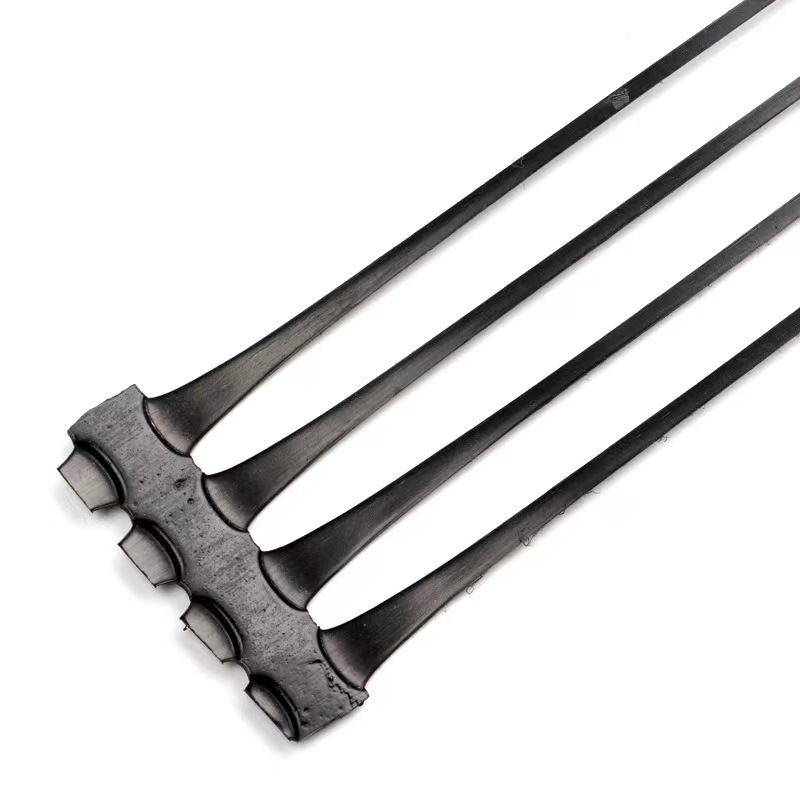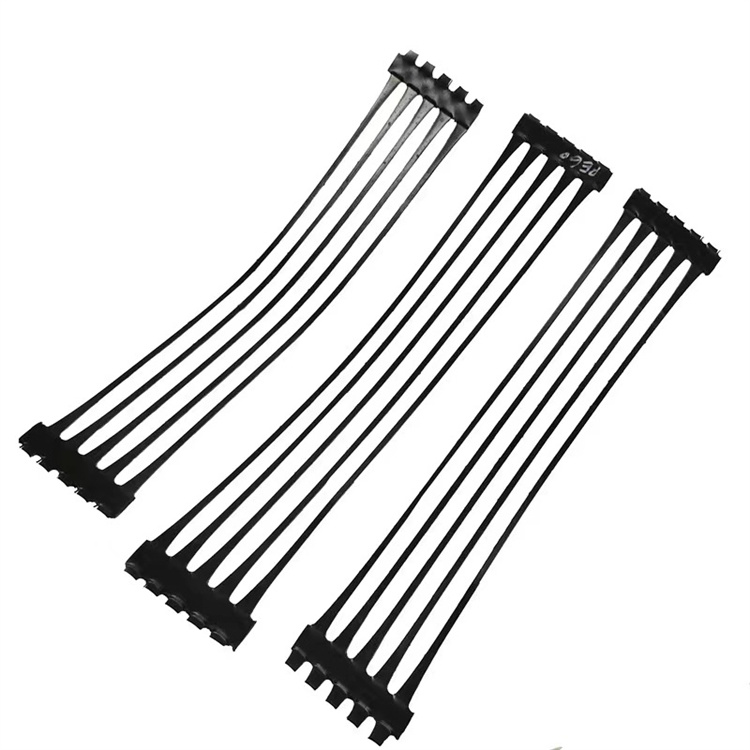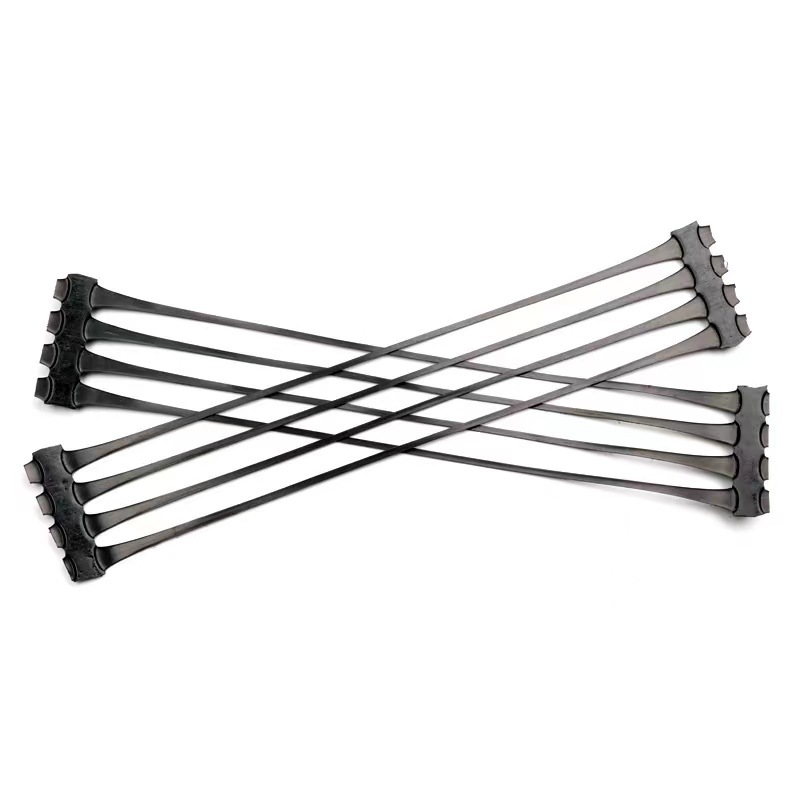Unidirectional Plastic Geogrid – Reliable Soil Reinforcement Solution for Construction and Roadworks
- Commodity name: Unidirectional Plastic Geogrid – Reliable Soil Reinforcement Solution for Construction and Roadworks
Puncture-resistant
Lightweight
Anti-corrosion
What Is a Unidirectional Plastic Geogrid?
A unidirectional plastic geogrid is a reinforcement material made from high-strength polymers like polypropylene (PP) or polyethylene (PE). It is manufactured by extruding and stretching plastic strips primarily in one direction, resulting in high tensile strength along that axis while offering minimal strength across the other.
This type of geogrid is ideal for reinforcing soil in retaining walls, slopes, and embankments where load mainly acts in one direction. Its design helps distribute loads efficiently and improves structural stability.
Key Technical Specifications:
-
Material: Polypropylene (PP) or Polyethylene (PE)
-
Tensile Strength (Machine Direction): 50–500 kN/m
-
Elongation at Break: ≤ 5%
-
Aperture Size: Typically 30–50 mm (in load direction)
-
Thickness: 1.0–3.0 mm
-
Chemical and UV Resistance: Excellent
Applications of Unidirectional Plastic Geogrids
Unidirectional plastic geogrids are commonly used in soil stabilization and reinforcement in a variety of civil engineering and construction projects. Some of the primary applications include:
Road Construction: Reinforces asphalt layers and base courses in road construction, improving load distribution and pavement stability.
Railway Bedding: Provides reinforcement for railway tracks and subgrade stabilization, ensuring the long-term stability of tracks under heavy loads.
Embankments: Used in the construction of embankments and slopes, preventing soil erosion and ensuring structural integrity.
Retaining Walls: Reinforces the structural strength of retaining walls, reducing the risk of failure and enhancing the load-bearing capacity of the walls.
Bridge Approaches: Helps stabilize bridge embankments and approaches, ensuring that they remain stable and resistant to deformation
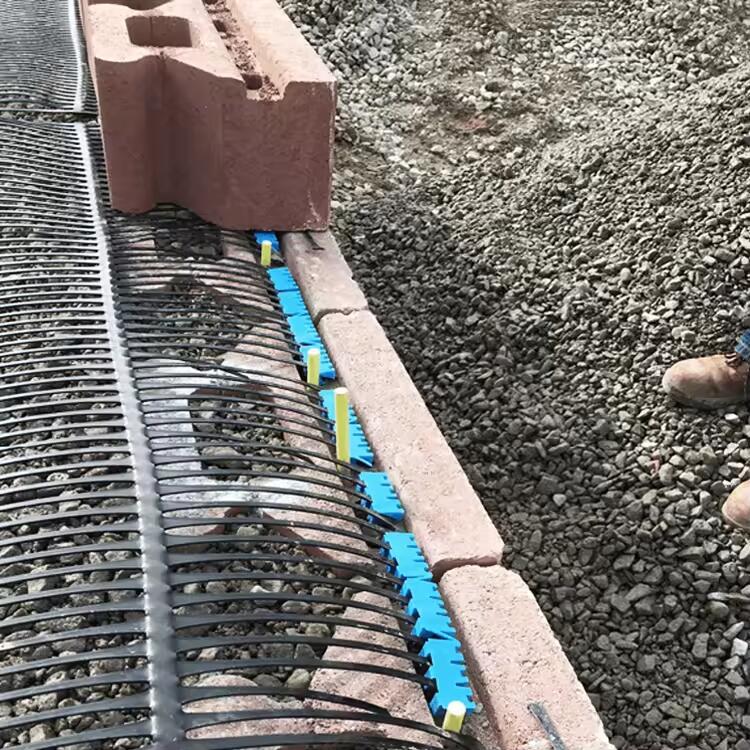
The unidirectional extension structure specifically enhances the longitudinal tensile strength of the soil, significantly improving the stability of unidirectional force-bearing structures such as fill slopes and steep slope roadbeds. The longitudinal ribs tightly lock the filler, inhibit the lateral displacement of soil particles, and effectively control the risk of uneven settlement and slip.
The polymer material is resistant to chemical corrosion, ultraviolet aging and biological erosion, ensuring long-term structural integrity in harsh environments. The coil is flexible and easy to spread, and can adapt to complex terrain for rapid anchoring and laying, greatly shortening the construction period and reducing the overall cost
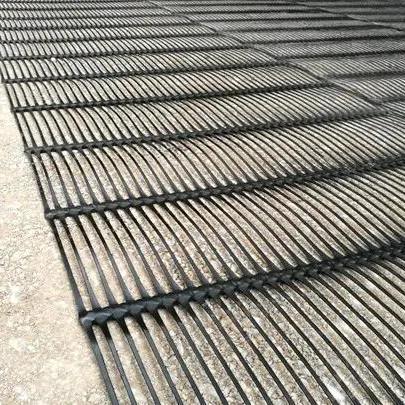
Looking forward to working with you
Sixteen foreign trade key account managers with more than ten years of engineering experience will promptly respond to any of your engineering questions. What are you waiting for? Let's get started.

Get A Quote
Note: Within a few minutes of filling out the form, you will receive the most timely and effective response.


